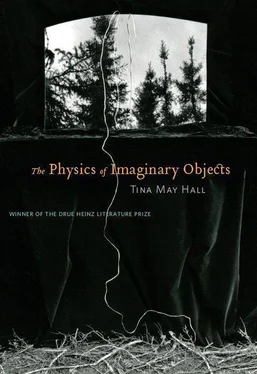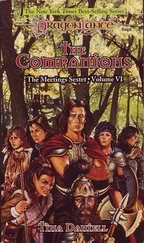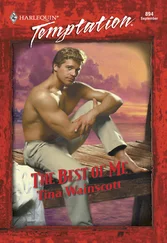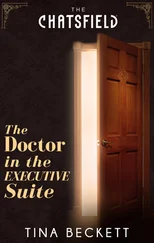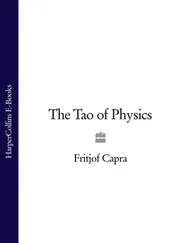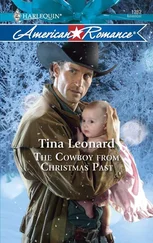Tina Hal - The Physics of Imaginary Objects
Здесь есть возможность читать онлайн «Tina Hal - The Physics of Imaginary Objects» весь текст электронной книги совершенно бесплатно (целиком полную версию без сокращений). В некоторых случаях можно слушать аудио, скачать через торрент в формате fb2 и присутствует краткое содержание. Год выпуска: 2010, Издательство: University of Pittsburgh Press, Жанр: Современная проза, на английском языке. Описание произведения, (предисловие) а так же отзывы посетителей доступны на портале библиотеки ЛибКат.
- Название:The Physics of Imaginary Objects
- Автор:
- Издательство:University of Pittsburgh Press
- Жанр:
- Год:2010
- ISBN:нет данных
- Рейтинг книги:5 / 5. Голосов: 1
-
Избранное:Добавить в избранное
- Отзывы:
-
Ваша оценка:
- 100
- 1
- 2
- 3
- 4
- 5
The Physics of Imaginary Objects: краткое содержание, описание и аннотация
Предлагаем к чтению аннотацию, описание, краткое содержание или предисловие (зависит от того, что написал сам автор книги «The Physics of Imaginary Objects»). Если вы не нашли необходимую информацию о книге — напишите в комментариях, мы постараемся отыскать её.
The Physics of Imaginary Objects,
The Physics of Imaginary Objects — читать онлайн бесплатно полную книгу (весь текст) целиком
Ниже представлен текст книги, разбитый по страницам. Система сохранения места последней прочитанной страницы, позволяет с удобством читать онлайн бесплатно книгу «The Physics of Imaginary Objects», без необходимости каждый раз заново искать на чём Вы остановились. Поставьте закладку, и сможете в любой момент перейти на страницу, на которой закончили чтение.
Интервал:
Закладка:
Our mothers won't let us sit on their laps.
Colleen is deaf. We broke all of our grandmothers' rose-decaled plates proving it. We speak to her in signs and spell out the unusual words. Filament, Frangipani, Balzac. She sings us to sleep with her stony voice. She wakes at dawn to bake saffron buns with fat raisins poking out like roaches. In public, we must be careful. The sight of our fingers spelling causes heart attacks and car accidents. Mostly, we wait to talk in the dark, in bathroom stalls and movie theaters, broom closets and basements, our hands pressed into her hand, our knuckles kissing.
We fit six across the backseat and shiver together, arms and legs wrapped like eels around each other.
Olivia, Ophelia, and Odette are identical triplets. They have red hair that has never been cut. They sleep on piles of it, bind it up in knots and rolls for the daytime, let it unfurl like bolts of silk after dark. They sing in unison, their clear voices making a chord. They tap dance and juggle knives. They do a ventriloquist act at the burlesque theater downtown. Between the strippers, the triplets appear, holding three dolls with long, red hair. They are perfectly synchronized; they never falter. Their lips don't move. Once in a while, a chartreuse feather floats down from the catwalk or the light shifts and the stage glitters with loosened sequins. For the finale, they sit perfectly still, until the audience forgets which are the dolls and which the girls and breaks into spontaneous applause.
We will grow up to be spelunkers, ballerinas, and landscape architects.
In fairy tales, we are the last to be eaten.
They call us late bloomers, daddy longlegs, frigid. They call us by each other's names and names we've never known and seat us in the back row of the plane, not realizing that it is our prayers keeping everyone from going down in a scream of burning metal. They call us sweetheart in the dark, never guessing we are all around them, so many of us packed in tight. That old game, we think. Breast, hip, thigh. Sardines , it was called, and the goal was to stay hidden.
We wash in teacups. We chart the stars on our scapulae, make telescopes of thumbs and forefingers. We cut our nails short as boys', the better to scratch at the chiggers embedded in our shins. We know our blood is sweet to drink; we know our bones are irresistible.
Kick
Last night, Ben dreamed of Freud and woke up laughing. He remembered this suddenly, as the lawn chair with its frayed, vinyl strips creaked against his fidgeting. Pale Johnnie threw two more steaks on the grill and some sausages and a bouquet of tender, pink chicken breasts. This was the monthly distance-running club gathering, and they were all on high-protein diets. Ben ran the farthest of them all, though Marco was the fastest. Ben was also the oldest of them, by nine years, an eternity to a runner, nearly two age groups. He shifted again, folding and unfolding his grasshopper legs.
Across the field, Jessamy was playing with the kids, throwing a kite into the air, trying in vain to catch a scrap of breeze. It was July, and the air was like honey. She called to the little boy holding the string (one of Pale Johnnie's kids — hair the same brush of white blond), “Run, run.” And the boy ran, dragging the kite behind him, the tip tripping over the stubbly earth. Jessamy was a runner too but only marathons, not ultramarathons, and she walked through the water stops. At Ben's events she took photos, shuttling from point to point to catch him. Invariably in these photos, Ben was mid-stride, mouth agape, left shoulder higher than the other, hands clenched. The other members of the club looked at the photos and chided him for the tense posture, talked about minutes he could shave off if he would relax his upper body. That was one of the highlights of these gatherings, race photo analysis. Along with talk of tapering strategies and shoe inserts and the best podiatrists in the area, the ones who would shoot you up with cortisone and not explicitly tell you to stay off your feet. Sometimes, when one of Ben's runs was over rough terrain, Jessamy brought her bike and she would buzz up to him out of the woods, spewing cedar chips and flecks of mud, snap her photos, and spin away. Ben thought of her as some kind of wood sprite in those moments, a distraction, a glimpse of color and a whir of wings. Jessamy was certainly sprite-like. Anyone would agree. Had there been a strong wind, the kite could have lifted her off of her feet. Ben thought of it, Jessamy, floating overhead, her blue sundress ballooning around her skinny legs, her sandals slipping off one by one to fall into the duck pond.
Jessamy wanted children, and Ben didn't. He didn't like the way they drooled and clung and had to be carried everywhere. That morning, after he had woken up laughing, Ben had gone to his lab and euthanized forty-two rove beetles to send to a fifth-grade class in Florida. When he had put them all in the killing jar along with the tablespoon of nail polish remover, all forty-two opened their mandibles at him and waved their abdomens threateningly. This was the type of moment that made Ben love being an entomologist, even though his running buddies introduced him as “the bug man” and he knew they found his job somehow ridiculous. As a boy, Ben had been happiest when he was lying outside at night, the air buzzing and crawling around him, his hands wrapped around one of the glass mason jars his grandmother saved for him. Jessamy wanted a dog, and Ben didn't. He didn't like the way they drooled and shed and had to be taken outside to shit. Jessamy wanted a velour couch and an inflatable travel bed and the color green on the kitchen walls. Jessamy wanted a lot of things Ben didn't. That morning he had labeled the box going to Florida in his flowery script and written underneath rove beetle, Staphylinus olens , and under that, often called the Devil's Coach Horse. On impulse, he drew a picture of the beetle on the side of the box, meticulously inked and shadowed, the kind of illustration he normally was paid quite a bit of money to produce.
Pale Johnnie had a nice spread. It was one of those farms that no longer functioned as such and instead was just a big, nostalgic playground for parents and children. The fields lay fallow and the barn housed a jumble of tricycles and beach floats, plastic balls and dolls, and hoops and teepees — everything inflatable. Pale Johnnie was going on about the trees in the field, how he had some agreement with the government not to let them grow and now the seedlings, too large to tug out, had to be poisoned, one by one, with some liquid so toxic that Pale Johnnie administered it with an eyedropper. A small, plastic hatchet was wedged into a stump by the barbeque grill; a decaying Day-Glo orange semiautomatic water gun lay near Ben's feet. He prodded at it with a toe, but it seemed rooted to the ground.
If Jessamy flew away, Ben would be sad but also very happy, relieved even. Sometimes he imagined ways she might die on her way home from her job at the daycare center and reassured himself that every married person did this now and again. His favorite was collision with an oil tanker because the body would be incinerated, leaving fewer details for him to fuss with in the midst of his bereavement. If Jessamy flew away, Ben would eat all of the casseroles that were stacked in the freezer, and surely there would be a stream of additional casseroles brought by neighbor ladies.
“Did you know you are harboring bald-faced hornets?” Ben called to Pale Johnnie, gesturing to the nest hanging from the barn eaves.
Marco's girlfriend, who was curled up on a beach towel next to Marco's chair, said, “Are they the ones always missing a leg?” She was big-bosomed and wore enormous, magenta-tinted sunglasses that matched her fingernail polish. She appeared to be nameless and, like all of Marco's girlfriends, seemed not to notice that he was just using her for sex. Ben had no idea what she was talking about. “You know,” she said earnestly. “They are on my screens all the time, big ugly suckers with claw legs, all lopsided like.”
Читать дальшеИнтервал:
Закладка:
Похожие книги на «The Physics of Imaginary Objects»
Представляем Вашему вниманию похожие книги на «The Physics of Imaginary Objects» списком для выбора. Мы отобрали схожую по названию и смыслу литературу в надежде предоставить читателям больше вариантов отыскать новые, интересные, ещё непрочитанные произведения.
Обсуждение, отзывы о книге «The Physics of Imaginary Objects» и просто собственные мнения читателей. Оставьте ваши комментарии, напишите, что Вы думаете о произведении, его смысле или главных героях. Укажите что конкретно понравилось, а что нет, и почему Вы так считаете.
